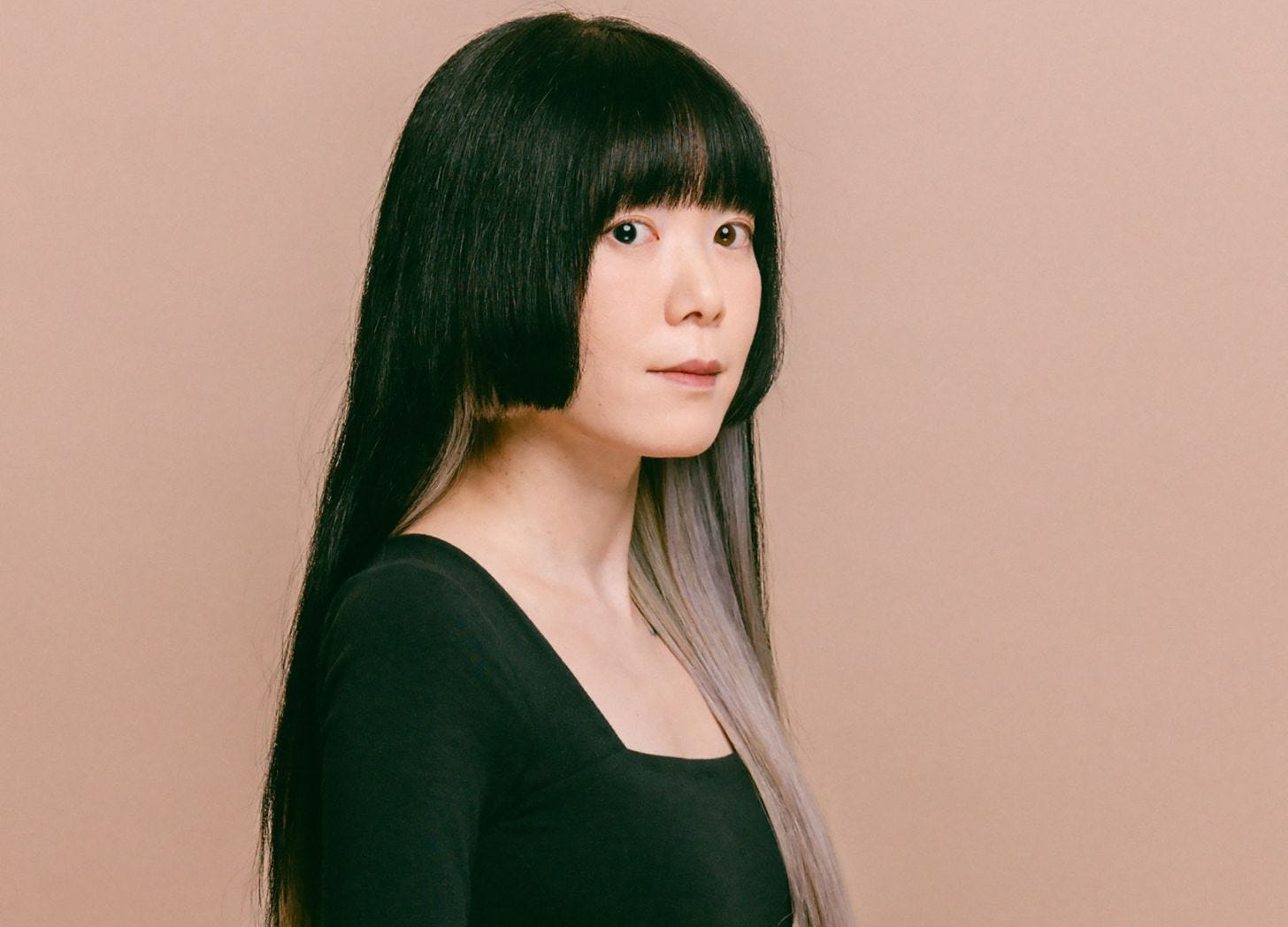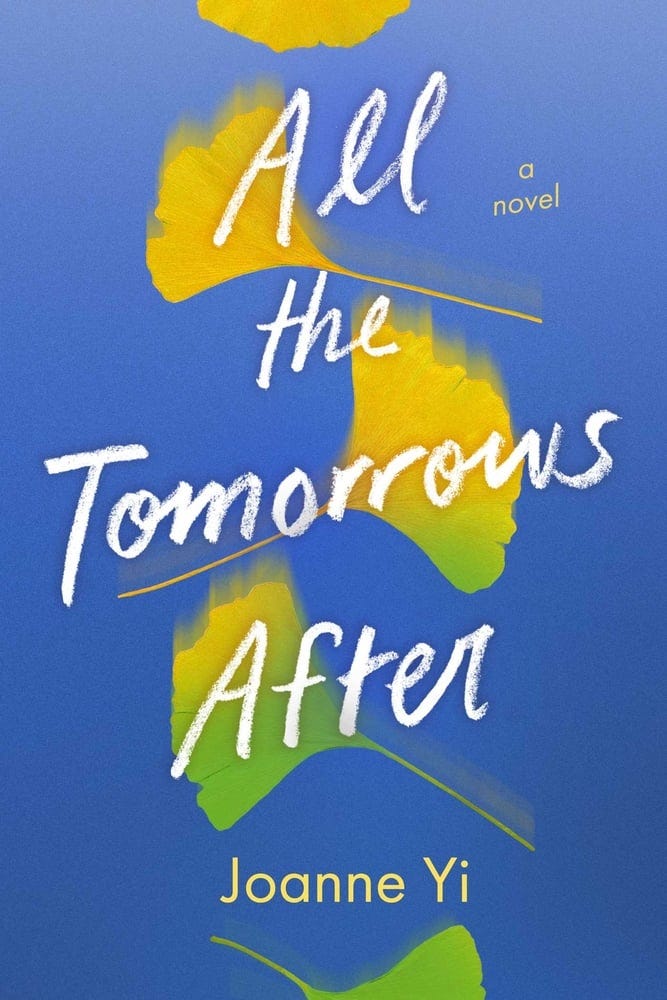Joanne Yi: Transforming Grief into Literary Truth
From Korean Roots to Voice of Healing in Young Adult novel, "All the Tomorrows After
Joanne Yi, a thoughtful and introspective voice in contemporary literature, brings a unique perspective shaped by her multicultural upbringing and diverse experiences. Born and raised in the sun-drenched landscapes of Southern California, Joanne’s journey has taken her throughout the serene neighborhoods of Orange County, with a few years spent in San Diego during her university studies. Having returned to her birthplace of Los Angeles, she has settled into the city’s creative rhythm, embracing it as her home.
Joanne’s path to professional writing reflects her multifaceted interests and intellectual curiosity. With an academic foundation in human development and psychology, she briefly ventured into culinary arts before discovering her true calling as a writer. This winding journey culminated in her pursuit of an MFA in creative writing, where she completed her first novel and honed her editorial skills as a fiction editor for her program’s literary magazine. Her experiences as a judge for writing competitions, an editor for literary magazines, and stints in journalism have provided valuable stepping stones toward her ultimate goal of becoming a full-time fiction writer.
Drawing inspiration from authors who fearlessly explore the depths of human emotion, including Joan Didion, Pik-Shuen Fung, Ocean Vuong, and Kathleen Glasgow, Joanne strives to create narratives that are raw, vulnerable, and honest in their examination of grief, pain, and the complexities of human existence.
Beyond her literary pursuits, Joanne finds solace in baking, an activity that, much like reading and writing, offers her a personal escape from the demands of everyday life. She shares her home with her husband—whom she met after resigning herself to a life of solitude—and their beloved Supermutt, Lumo, who keeps her company during writing sessions. Together, the couple indulges their shared passion for horror films, always searching for their next favorite.
While those who know Joanne recognize her as a quintessential introvert, few might realize that English was not her first language—she spoke only Korean at home until second grade. This linguistic journey, along with her profound appreciation for emotional Korean dramas, continues to influence her distinctive literary voice as she carves her place in the world of contemporary fiction.
You take on some heavy topics in your novel. Can you discuss what inspired you to write about these themes?
Soon after I graduated from college, my father was diagnosed with ALS. Over seven years, he lost the function of his limbs, the ability to speak and eat, and the strength to breathe independently. Following a spate of emergencies, he was admitted to a care facility, where he passed away suddenly and alone. Anticipatory grief did not prepare me in the least. I simultaneously knew and rejected the facts of his prognosis for a long time.
I’ve spent most of my adulthood trying to find the right words. What I’ve learned is that there are none, really, to articulate a loved one’s slow and inevitable deterioration. My forthcoming novel, All the Tomorrows After, is shaped by our journey, which began in the absence of hope and continues in the absence of a farewell. It is inspired by my father, his battle to maintain his identity, and our family’s experiences as caregivers. It is a reflection of myself as a young adult navigating grief, guilt, and isolation.
How do you balance your artistic integrity with the expectations of the market and publishing industry?
I am still trying to figure out this balance as a debut author. I can’t deny that building a career as an author involves the ability to sell books. As with most things, the industry cycles through trends with popular genres, themes, and tropes. This brings on a level of pressure, and the question of whether I am writing the “right” kind of book at the “right” time.
While I don’t have the answers yet, I do try to stay true to the why of each project. Why am I writing this story? What is my mission? I also prescribe to the common practice of writing what I want to read. The novels I love and return to over time tend to be written with authenticity, while still employing strong characters and engaging plots. These are elements I aspire to in my own work.
Can you share more about what drives you as an artist?
The authors that leave a lasting impact on me are those who explore universal truths through their unique lenses. Stories on the human condition, loss, healing, mental health, intergenerational trauma, and so much more. Stories that touch, educate, and prompt reflection through their transparency.
In a similar sense, one of my goals is to put my voice to paper, in the hopes that it will reach and move its audience in some small way. Though reading and writing are often solitary and personal journeys, they also revolve around connection. Whether we deliver or receive the words, we are being seen and heard to a degree. A certain catharsis exists in that. It is also a gift, I think, to discover this kinship amidst all our different walks of life.
Being an author is a difficult career choice, especially for underrepresented writers. What challenges have you faced and how did you overcome them? How do you think your unique perspective contributes to the broader literary landscape?
Regarding All the Tomorrows After in particular, my experiences have been lovely thus far. I have the honor of working with some truly special people who immediately shared my vision for this story. They have provided a wealth of wisdom, guidance, and support over the months. I do not take this for granted and am so grateful.
Like many writers, I have faced rejections and a range of feedback on my shorter fiction, running from very constructive to disheartening. Some revolved around my stories being too specific to my heritage and impossible to relate to. On the contrary, I’ve also been questioned why, as an Asian-American woman, I do not explore identity issues deeply enough.
While critique is subjective and can be contradictory to various degrees, it still isn’t easy, of course, to receive invalidating comments. I can’t say there has been a set approach to overcoming these challenges. At the risk of sounding corny, I’ve continued to write what I believe in.
As a daughter of Korean immigrants, I still have so much to explore within the history and culture I have inherited, in addition to my personal journey through grief, healing, and chronic pain. I hope these stories from my small corner contribute in some way.
While this is your debut novel, you’ve been in the writing industry for many years now. How would you say your writing has evolved and how do you keep yourself growing as a writer?
I believe unearthing and gaining trust in my voice has played a large role in growth, along with better understanding the types of stories I want to write. I have learned that there is strength in vulnerability, and that stepping past my own barriers, however terrifying, is worthwhile. As with everything, it is an ongoing discovery, and my voice and style will likely continue to evolve in the years to come.
Since this path is often nonlinear, it’s difficult at times to see tangible progress. But I do try to learn from past obstacles, which run the gamut from self-doubt and creative blocks, to difficulties with plotting and pacing. It may go without saying, but I also find that reading, and exposure in general, is essential to pushing past the boundaries.
What do you hope your novel will contribute to the ongoing conversation about diversity and representation in literature, particularly in terms of Asian-American voices?
As a Korean-American with a more traditional upbringing, I’ve long observed a culture of silence surrounding such topics as grief, mental health, and trauma. Intentional communication on these matters has not come easily, due to the general stigma that often accompanies them. I don’t imagine this to be uncommon.
All the Tomorrows After revolves around a protagonist who is firmly both Korean and American like myself, and whose trials and gradual self-discovery inform much of her perspective. While I am not certain exactly how this book might contribute to the broader conversation, I do hope it will speak to the validity of these struggles. To openly address the inevitable challenges that come with existence is not shameful, nor is it something to fear. I am still learning this as well.
Tell us a little about your upcoming book and why you wrote it.
All the Tomorrows After follows a Korean-American teen dreaming of escape who agrees to spend time with her estranged father in exchange for payment. When she discovers a secret her father has been keeping from her, she begins to question everything: her conviction to disappear, her future with the boy she didn’t plan to fall in love with, and what it really means to be family.
This story is a close exploration of grief, rage, first love, found family, forgiveness, and difficult intergenerational relationships. It is heavily influenced by my grief journey and heritage, as elaborated on in an earlier question.
I have learned over the years how invasive and isolating grief can be. I imagine many traversing their own journeys might feel similarly. All the Tomorrows After was born of a desire to understand the enduring shadow of loss and to seek the light in the broken, however elusive it may feel.
I have long found homes in the honest and intimate words of authors I admire. It would be an honor if this story, too, were to touch readers in any way. Above all, I am grateful for the opportunity to share it.
All the Tomorrows After is forthcoming from Simon & Schuster / Atheneum on August 19, 2025, available wherever books are sold.
To stay up to date with all Joanne is doing, follow her on her website or Instagram.






